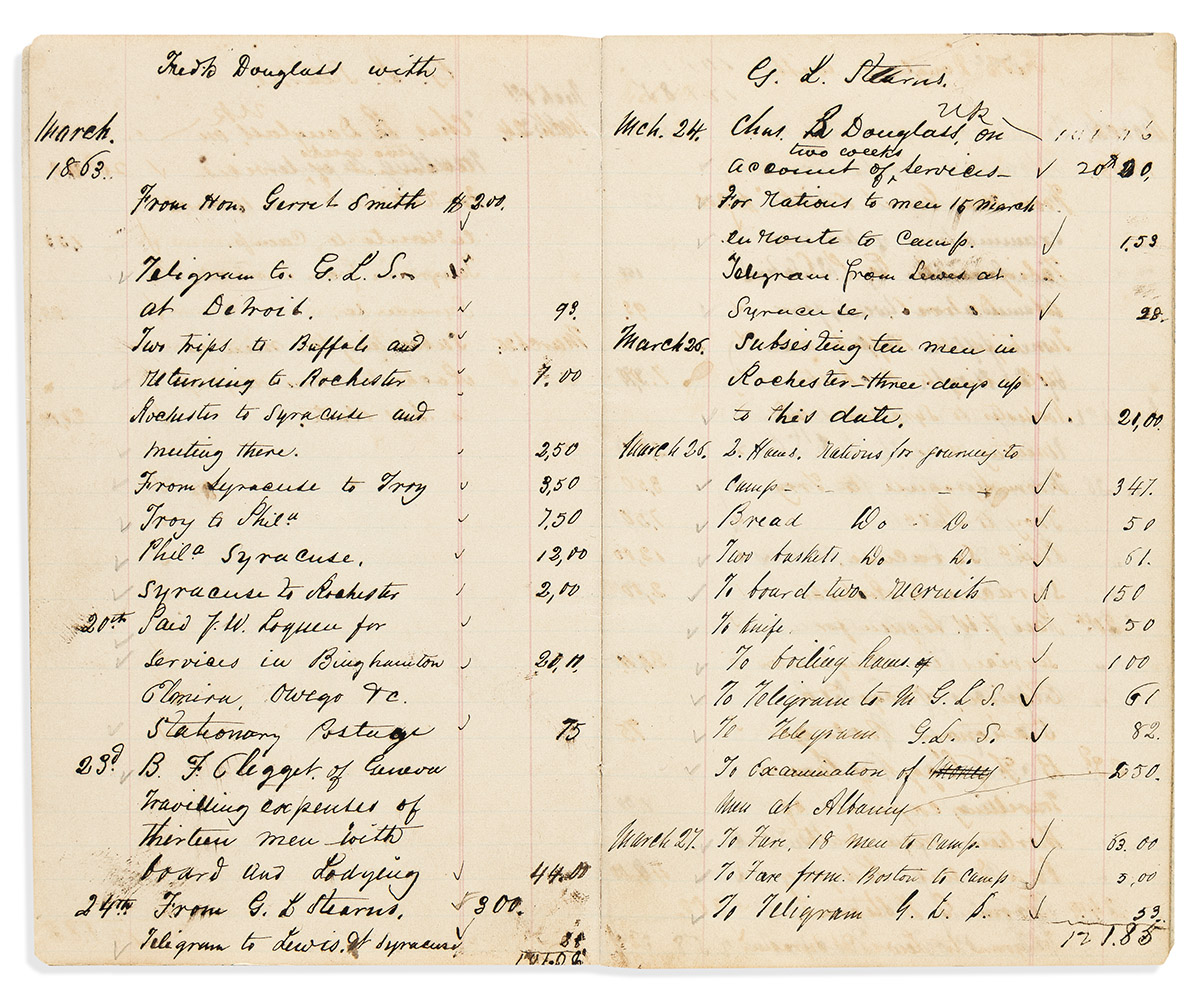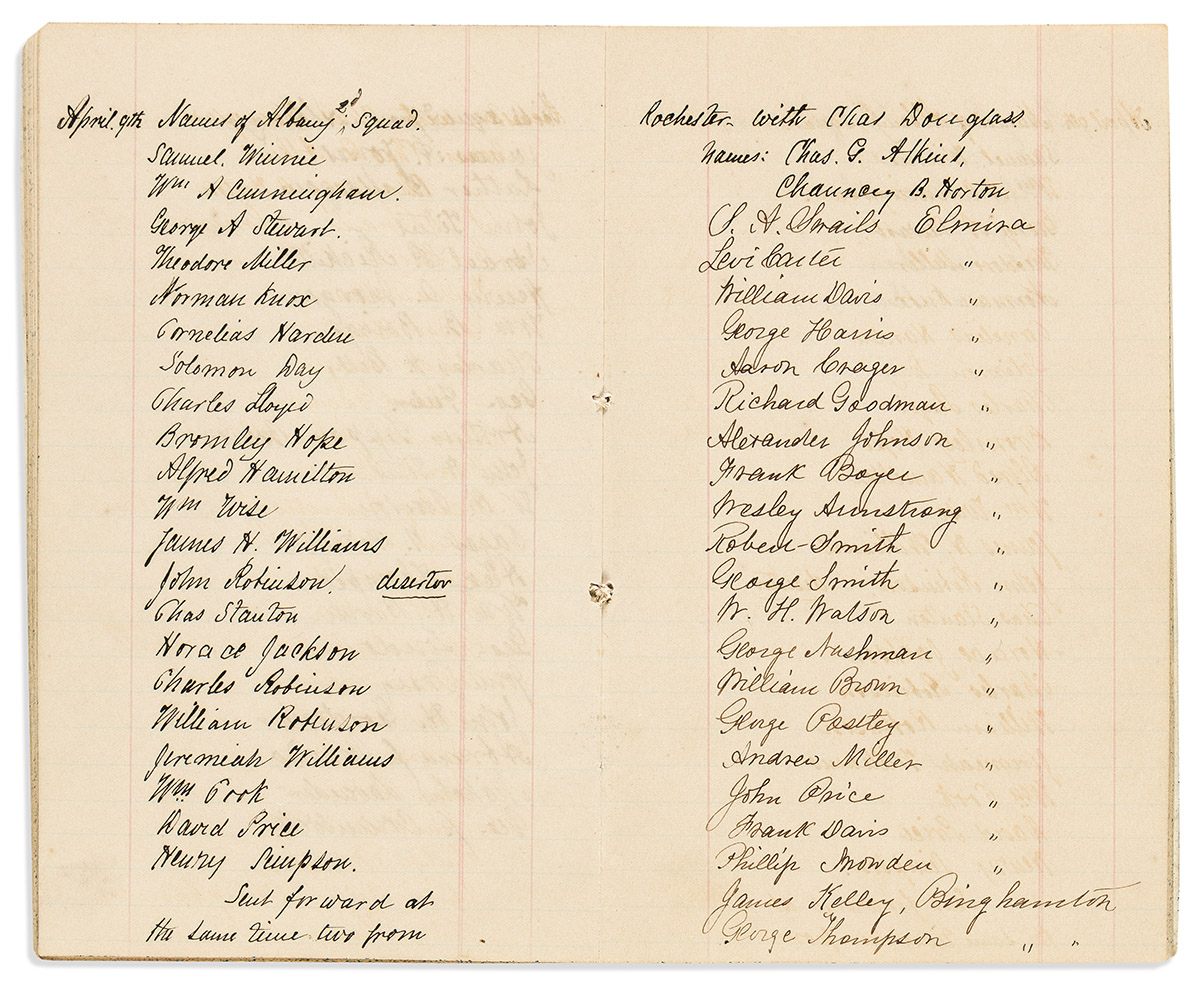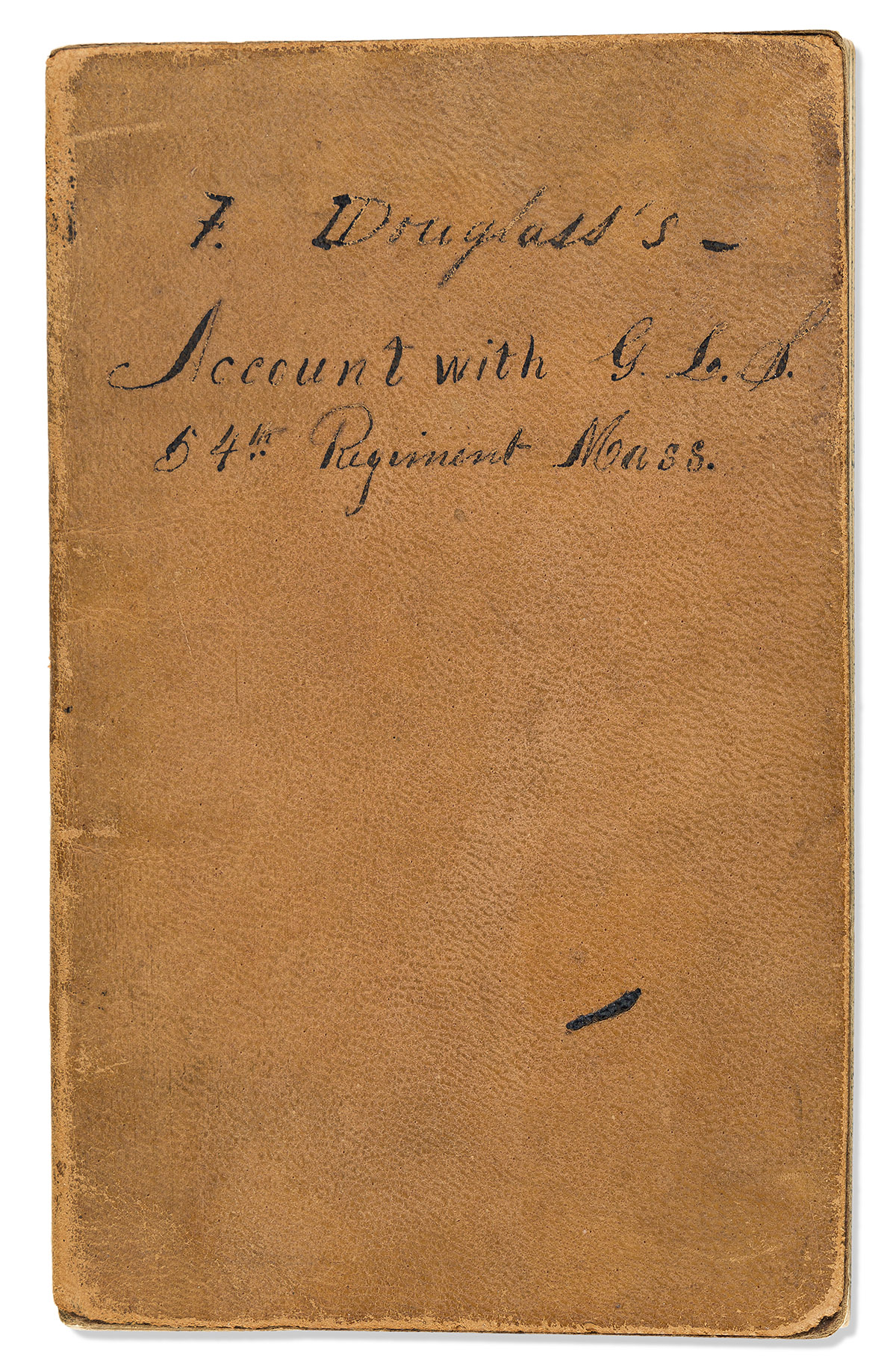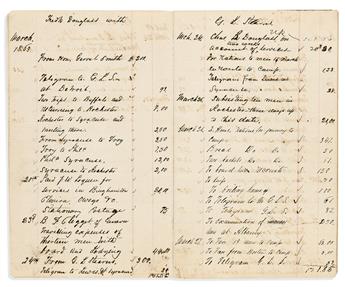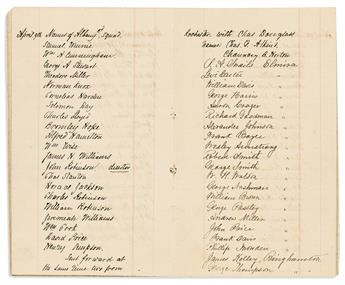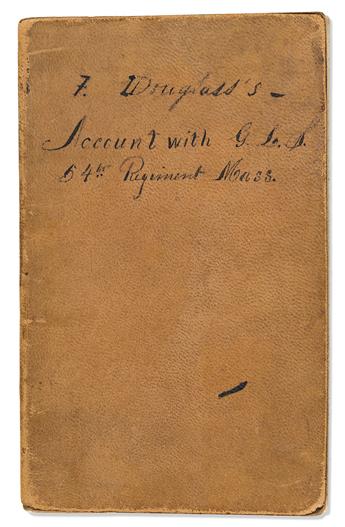Sale 2686 - Lot 28
Price Realized: $ 140,000
Price Realized: $ 173,000
?Final Price Realized includes Buyer’s Premium added to Hammer Price
Estimate: $ 60,000 - $ 90,000
ACCOUNTING BOOK KEPT BY HIM WHILE RECRUITING FOR 54TH REGIMENT (CIVIL WAR.) DOUGLASS, FREDERICK. Autograph Manuscript Signed, "Fred'k Douglass" in third person within the text, his accounting book for expenses incurred during 1863 recruitment of 54th Regiment of MA, including 12 holograph pages. The front cover bears the inscription, "F. Douglass's-- / Account with G[eorge] L[uther] S[tearns] / 54th Regiment Mass," likely in Douglass's hand. The last 6 manuscript pages list the names of the men recruited (including those of his own sons Charles and Lewis) as well as the names of their hometowns (New York City, Albany, Rochester, Syracuse, Binghamton, and Elmira), all in holograph except the last two pages, possibly in hand of his son Charles. Additionally signed and inscribed by abolitionist George Luther Stearns, "Buffalo April 13/63 / Settled to date / George L. Stearns," on sixth page. The name and address of Edward Gilbert, involved in recruitment in New York City at the time, written on first page, in unknown hand, in pencil. 40 pages. 12mo, original sheep over boards, rubbing at all edges, moderate scattered staining; text block becoming detached, ruled paper, partial bookplate of the Frederick Douglass Memorial Association on front pastedown, faint offsetting throughout, few short closed tears at lower edge scattered throughout. Np, March-August 1863
Additional Details
The 54th Massachusetts Infantry Regiment was the second African-American regiment--after the 1st Kansas Colored Volunteer Infantry Regiment--authorized by the Emancipation Proclamation. Recruitment for these units initially encountered obstacles because of unequal treatment, including significantly less pay for African-American soldiers. On July 31, 1863, the New York Times published a letter from War Department solicitor William Whiting to Edward Gilbert of New York, giving assurance that African-American soldiers would be compensated the same as their White brothers in arms: "[S]ince the Conscription act makes no distinction between white and colored citizens, but requires them equally to be enrolled and drafted in the forces of the United States, there seems to be no reason why such citizens should not, when volunteering to serve the country, be placed upon the same footing with other soldiers as regards their pay and bounty." In June of 1864, Congress granted equal pay, including back pay to those African-American soldiers already paid according to the earlier rate.
Frederick Douglass joined in the effort to recruit soldiers, in part, because he believed it would entitle African-Americans to the full citizenship deserved by those who sacrifice for their country. The present lot contains Douglass's recruitment accounts with fellow abolitionist George Luther Stearns (1809-1867), a wealthy White industrialist who had supported John Brown's rebellion as one of the famed "Secret Six." Stearns is known to history as an important supporter of the 54th Massachusetts, as demonstrated in this account book. Douglass carefully records all of his recruiting expenses, as well as the cash reimbursements he received; the latter begin with an initial $200 fund from Stearns's fellow Secret Six member Gerrit Smith, followed by Stearns's $300 on March 24 and another $100 on April 22.
Frederick Douglass joined in the effort to recruit soldiers, in part, because he believed it would entitle African-Americans to the full citizenship deserved by those who sacrifice for their country. The present lot contains Douglass's recruitment accounts with fellow abolitionist George Luther Stearns (1809-1867), a wealthy White industrialist who had supported John Brown's rebellion as one of the famed "Secret Six." Stearns is known to history as an important supporter of the 54th Massachusetts, as demonstrated in this account book. Douglass carefully records all of his recruiting expenses, as well as the cash reimbursements he received; the latter begin with an initial $200 fund from Stearns's fellow Secret Six member Gerrit Smith, followed by Stearns's $300 on March 24 and another $100 on April 22.
Exhibition Hours
Exhibition Hours
Aliquam vulputate ornare congue. Vestibulum maximus, libero in placerat faucibus, risus nisl molestie massa, ut maximus metus lectus vel lorem.



